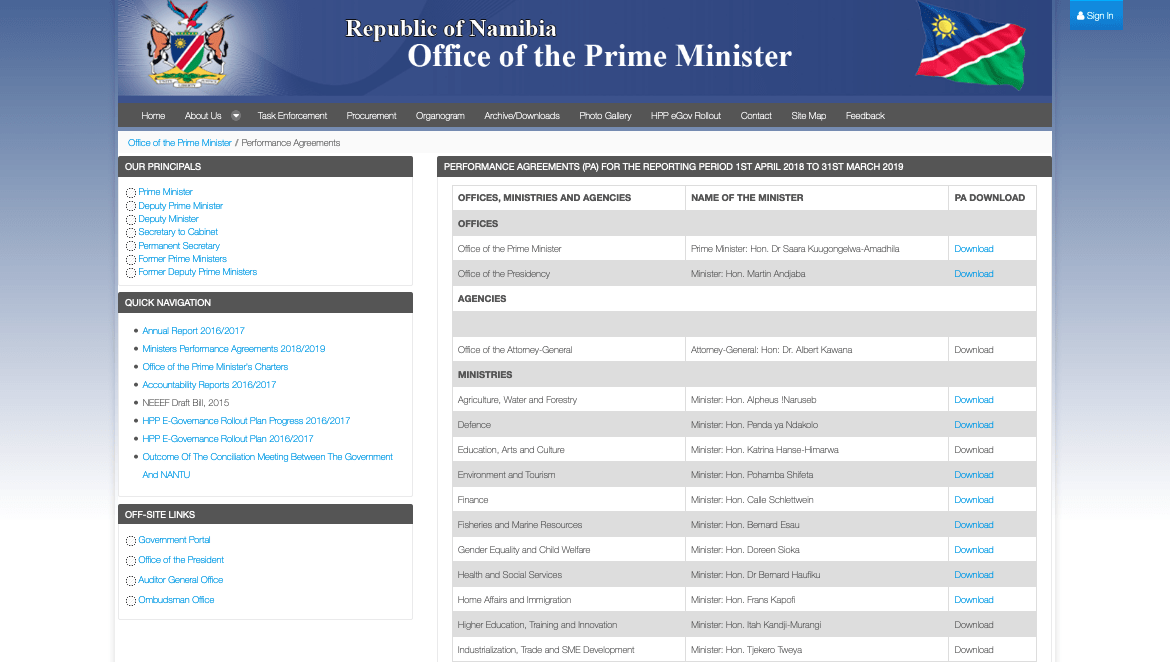During his State of the Nation (SONA) speech in the National Assembly chamber on 17 April 2019, President Hage Geingob made the following statements:
“Performance Agreements have been availed for public scrutiny via the Office of the Prime Minister website, while Quarterly Reviews are used as a platform to provide feedback.”
The most important part – the claim – of these statements is the following:
- That ministerial performance agreements are available for public scrutiny on the Office of the Prime Minister (OPM) website.
This is technically true, however, what we also found is the following:
- When President Geingob made the statements, the performance agreements on the OPM website were out of date;
- All of the performance agreements listed on the OPM website are for the 2018/19 financial year, which ran from 1 April 2018 to 31 March 2019;
- Not all performance agreements were available. Four (4) ministerial performance agreements – Attorney-General; Education, Arts and Culture; Higher Education, Training and Innovation; and, Industrialisation, Trade and SME Development – were not available for that financial year.
In our assessment:
- The President’s statement about ministerial performance agreements is mostly true, but problematic, for strictly speaking, when he made the statement, the performance agreements for 2019/20 were not available and are still not available, at the beginning of July 2019.
The issue of quarterly reports will be dealt with in a future post, once comment has been sourced from the Office of the President.
The President’s reference to the performance agreements appears on page 12 of the 2019 State of the Nation speech, which can be accessed at the following link: http://209.88.21.83/documents/84084/826266/PresidentGeingobStateOfTheNationAddress2019.pdf/f34dfeb4-7f92-47b1-9c4f-05fe8bba028a?version=1.0

